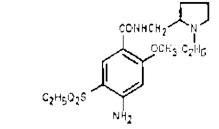News Update
Newer, atypical anti-psychotics last month received the seal of approval from the National Institute of Clinical Excellence, in England and Wales. The decision has been widely welcomed by service users and carers, mental health charities, professional groups and the pharmaceutical industry.
But the decision goes well beyond simply conferring wider prescribing authority on doctors. NICE emphasises that choices of medication must be made in consultation with service users and carers.
NICE also advises that those who are taking a `typical antipsychotic and achieving good control of their condition, without unacceptable side effects, should not change medication.
The decision on 'unacceptable' side-effects should follow discussion on the relative benefits of each of the drugs and their side-effects between the individual and the clinician responsible for their care.
The guidance recognises the importance of working together in determining care and medication when managing schizophrenia.
NICE justifies its decision on both clinical effectiveness and cost effectiveness grounds. Direct NHS treatment costs for schizophrenia to in England and Wales are more $VI billion annually, mostly spent on hospitalisation. -Around five per cent is spent on medicines.
The established antipsychotics cost, on average, about 70 per person per year. The figure for newer 'atypical' anti-psychotics is. on average, about 1220.
Brian Rogers, professional officer for the CPNA said the NICE decision was a welcome end to the 'postcode' lottery which decided whether a service user could have access to newer medications.
"The disappearance of older, dirtier medicines should help to minimise the difficulties people face in sticking to their medication," he said. "But we should sound a word of caution as health professionals.
"There will still be side-effects with the newer medications and you should exercise care when people are transferring from one medication to another. In addition, medication must still be seen in the context of a broader range of treatments, therapies and support."
Dr. Alexander Simpson, UK Medical Director at Eli Lilly welcomed the decision to recommend atypicals such as Zyprexa (olanzapine) as first line treatment for schizophrenia.
"We look forward to the swift and widespread implementation of this guidance to ensure that all people with schizophrenia have access to the best and most appropriate treatments so that they have the opportunity to move their lives forward and realise their potential.
Lilly believes that patients and carers should be at the centre of the treatment decision-making process," he said.
Commenting on the announcement, Dr Lyn Pilowsky of the Institute of Psychiatry said: "This is fantastic news for people with schizophrenia and those who really do want to treat them with the best medicines available."
Dr Susan Griffith, spokesperson for SanofiSynthelabo, also welcomed the ruling. She said: "The NICE guidelines mean that patients will now be able to benefit from the newer atypical antipsychotic drugs which offer good symptom control and more control for the patient in what can be a life-long seriously distressing condition.'
Sanofi-Synthelabo are the manufacturers of Solian (amisulpride), a selective atypical antipsychotic drug available in three tablet strengths and Solian Solution, for the treatment of newly diagnosed schizophrenia patients, relapsed patients and those patients experiencing unacceptable side effects on other treatments.
There was a warning, though, about funding. Simon LawtonSmith of the Mental Health Aftercare Association (MACA)said: "Primary and secondary care funders need to get together to guarantee the money for an increased drugs bill, recognising the savings from fewer hospital admissions."
Mr Lawton Snith said the new opportunities depended on genuine consultation between medical staff and service users.
Resources Ideas
MIND Prescribing Protocol: For the prescribing protocol or the My Choice booklet and CDROM film contact the Mind Campaigns Line on 020 8215 2424, e-mail HYPERLINK mailto:action@mind.org.uk, action@mind.org.uk, or write to: Mind In Action, Mind, Granta House, 15-19 Broadway, London E 15 4BQ
The Noonday Demon: An Anatomy of Depression (Chatto & Windus, 20 hardback, 2001, Vintage paperback, 8.99, 2002)
Taken Seriously, from the Mental Health Foundation, price 20 plus p&p (10 for unwaged), Tel: 020 7802 0304. The two other reports are available from Somerset Partnership NHS & Social Care Trust, Tel:
01823 330502.
Effectiveness of brief CBT therapy. British journal of Psychiatry (180) 523-527 In addition MIND has produced a guide to CBT which could be useful in assisting service users ands carers to appreciate the possibilities. Making sense of Cognitive Behaviour Therapy describes the family of therapies sheltering under this expression and how they can help with a range of mental health problems. MIND publications 3.50 plus 44p SAE. Tel 0208221 9666.
Food drink and dementia, How to help people with dementia eat and drink well. Dementia services development centre E9.00 Tel 01786 467740
Copyright Community Psychiatric Nurses Association Jul/Aug 2002
Provided by ProQuest Information and Learning Company. All rights Reserved



